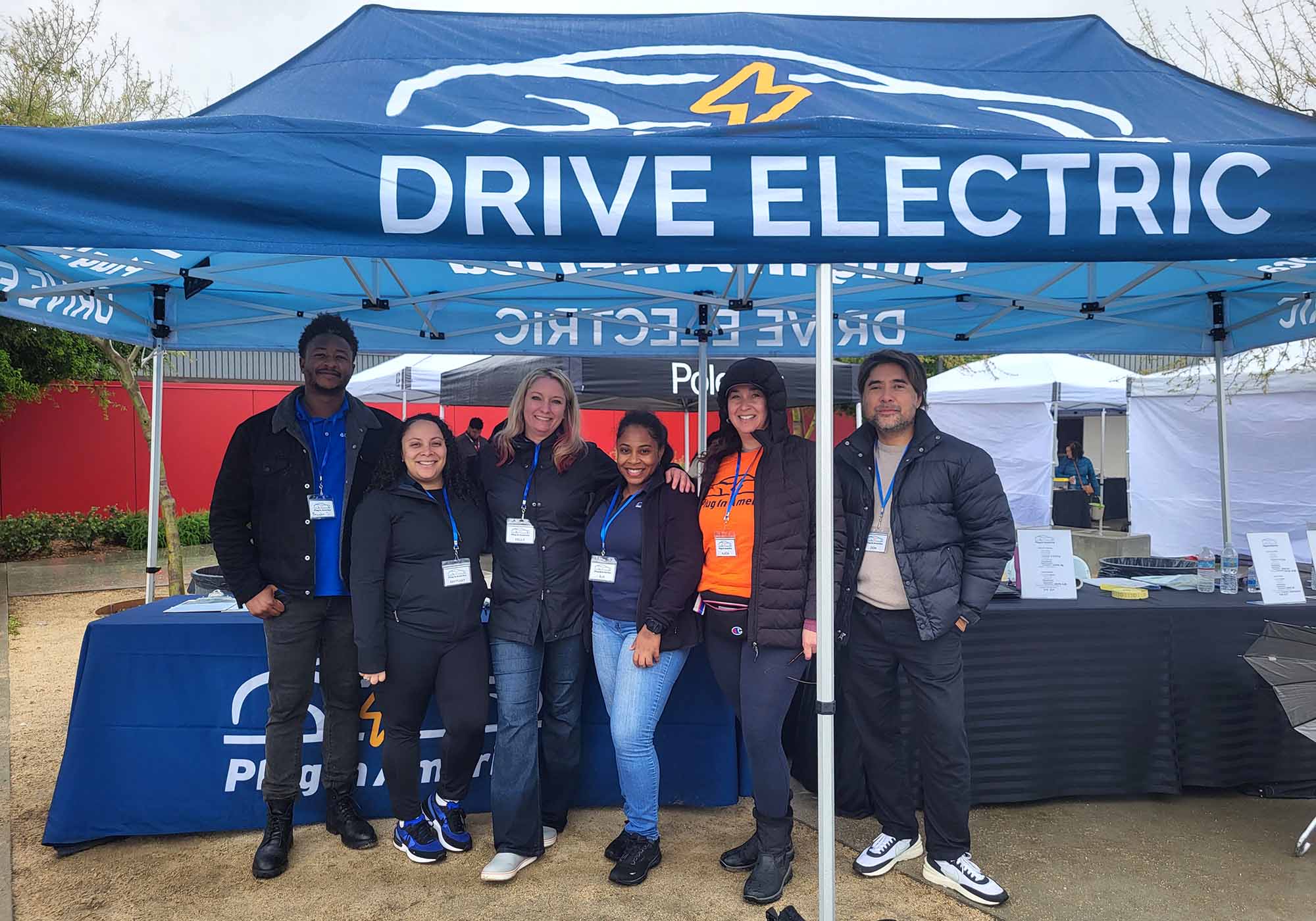✅ Over a million EVs sold in the U.S. in a year
✅ First NEVI charging stations up and running
✅ Gasoline sales have passed their peak
It’s been a busy year here on the policy team. Join us as we recap highlights from 2023 and flag big things to expect in 2024.
Clean Vehicle Tax Credits
Clean vehicle tax credits kicked into high gear in 2023. New federal EV tax credits were expanded and updated, and credits for used and commercial EVs became available for the first time in January. The tax credits are complicated, but Plug In America is committed to providing timely, accurate information to help drivers understand the tax credits. We hosted multiple webinars, answered hundreds of questions through our EV Support Program, and created easy-to-understand resources for EV shoppers.
National EV Charging
2023 marked two years since the passage of the Bipartisan Infrastructure Law. With $7.5 billion in dedicated funding to build a public charging network across America, Plug In America worked closely with partners, the administration, and the Joint Office to identify a path toward a reliable charging network to build range confidence. We also provided feedback from EV drivers (thanks to you!) on charging reliability to support robust public charging stations that will work the first time, every time.
EV Driver Survey
Thanks to feedback from readers like you, Plug In America continues to better understand the benefits and challenges of driving electric. We conducted our third annual EV Driver Survey and through a partnership with EPRI, started conducting quarterly surveys and mini-surveys to dive deeper into specific topics. The annual EV Driver Survey received feedback from thousands of current and prospective EV drivers. We learned that although EV drivers love their vehicles, with 90% of owners reporting they are “likely” or “very likely” to buy another EV, there was increased frustration with broken, non-functional, and sparse fast-charging infrastructure. This vital feedback supports federal initiatives like NEVI and helps us focus our efforts in 2024.
Clean Car Standards
In coordination with our partners, Plug In America advocated for improved air quality and public health by supporting the Environmental Protection Agency’s (EPA) proposed multi-pollutant emission standards for light-duty vehicles (LDV) in model year 2027-2032and the National Highway Traffic Safety Administration (NHTSA) proposed Corporate Average Fuel Economy (CAFE) standards that address vehicles sold in model year 2027 and beyond. Working together, the EPA LDV emission and CAFE standards reduce demand for fossil fuels, save drivers money, and provide greater fuel security.
State Policy
2023 provided cause for celebration in California for advocates of clean air, EVs, and environmental justice. The state guaranteed hundreds of millions in funding for the Clean Transportation Program (CTP), the Air Quality Improvement Program (AQIP), and the Enhanced Fleet Modernization Program (EFMP). The Clean Transportation Program requires that at least 50% of investments directly benefit disadvantaged and low-income communities. Nationally, billions of federal dollars are available to support local governments, communities, and businesses in driving the transition to electric transportation. Plug In America helped create resources to support Arizona in securing access to the funding necessary to reap the benefits of an electrified transportation system. New Mexico adopted the Advanced Clean Cars II standard (ACC II). ACC II will increase the number of zero-emission vehicles sold in New Mexico and provide greater consumer choice of EVs.
Achieve Model Policy Toolkit
In January, we launched AchiEVe: Model Policies to Accelerate Electric Vehicle Adoption in partnership with the Sierra Club, Forth, and the Electrification Coalition. The most recent version of the policy toolkit highlights funding opportunities and real-world policy solutions at the city, county, state, and tribal levels to accelerate the widespread adoption of EVs.
Road User Fees
In 2023, Plug In America published a position on road user fees to combat punitive state EV fees. As gas tax revenues decline, some states are looking to EVs to close the funding gap through increased registration costs and per kWH electricity taxes on charging. Plug In America developed a three-step process for establishing fair, but not punitive, road-user fees. Check out the full position here.
Battery Supply Chains
In 2023, EVs received pushback for the potential implications of switching to a minerals-based energy economy. Plug In America developed a position on battery supply chains because we do not have to choose between rapidly transitioning to electrified transportation and protecting communities and ecosystems. Our position prioritizes demand reduction, a circular economy, and responsible, ethical materials sourcing to decrease the need for new mining and ensure that mineral sourcing is socially and environmentally responsible.
Looking Towards the Future:
2024 is already teed up to be a huge year for vehicle electrification. Starting on January 1, the new and used EV tax credit will essentially convert into a point-of-sale rebate. Buyers can receive up to $7,500 off the vehicle sticker price before leaving the dealership, even if they have little or no tax liability for the year.
This month, the first two NEVI-funded chargers opened in Ohio and New York, leading the administration’s work to roll out 500,000 plus chargers, connecting 79,000 miles of America’s highways and roads.
Finally, we are eager to see the finalized EPA LDV standards and NHTSA CAFE standards.
Here are a few of the actions we look forward to pursuing in the coming year:
- Continue providing education and outreach to drivers and policymakers on the benefits of going electric.
- Develop a library of model policy language to help states introduce EV-friendly legislation.
- Continue to support states on NEVI planning and implementation.
- Research, identify, and compile solutions to provide convenient, affordable, and accessible charging for people living in multi-family housing.
- Leverage the experience of EV drivers to improve public charging reliability and accessibility across the country.
- Expand our work on EV battery supply chains to further demonstrate alignment between conservationists and EV advocates.
Want to support our work? Donate today so we can keep our momentum strong.


